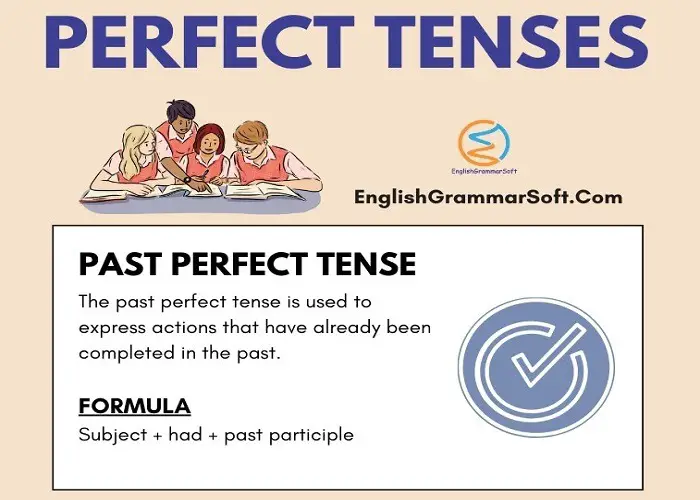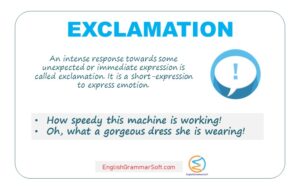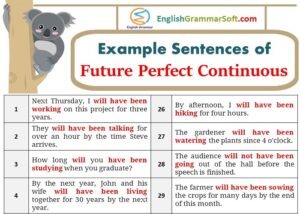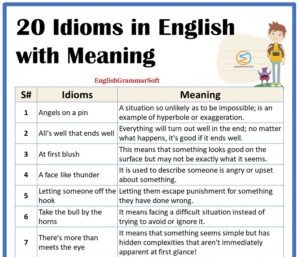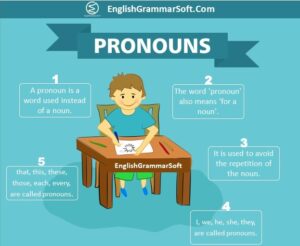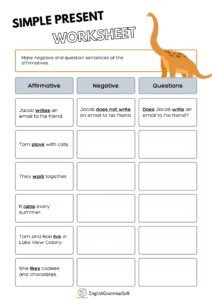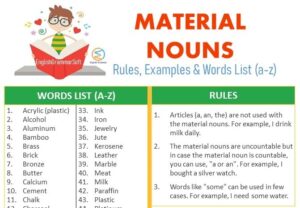Perfect Tenses of Verbs (20 Examples Each)
Perfect tenses are verb tenses that express actions or states that have been completed or will be completed. The three perfect tenses are the present perfect, past perfect and future perfect.
What are perfect tenses?
To form a perfect tense, you need two elements: the appropriate form of the auxiliary verb “have”/”had”/”will have” and the past participle of the main verb.
For example, the present perfect tense of the verb “read” is formed with the auxiliary verb “have” in the present tense (i.e., “has” or “have”) and the past participle of “read” (i.e., “read”). So, a sentence in the present perfect tense would look like this:
I have read the book.
We will discuss three types of perfect tenses: past perfect, present perfect and future perfect tense.
Past Perfect Tense
The past perfect tense is used to express actions or states that were completed before a specific point in the past. It is formed with the auxiliary verb “had” in the past tense and the past participle of the main verb. For example:
- I had read the book before I saw the movie.
- You had eaten lunch when I entered the room.
- They had finished their homework after they had watched television.
As you can see from these examples, the past perfect is often used with time expressions such as “before,” “after,” and “when.”
Structure of Past Perfect Tense
The structure of past perfect tense is:
Subject + had + past participle
| Subject | auxiliary verb | main verb | object |
| He/She | had | read | the book. |
| I/You/They/We | had | read | the book. |
When to Use Past Perfect Tense?
The past perfect tense is used in the following situations:
1) To express a past event that happened before another past event. For example, I had eaten my dinner before you arrived.
2) To express an action or state that continued for some time in the past. For example, The market had been stagnant for the past few weeks.
3) To describe a repeated action or state in the past. For example, Robert had written the annual report for five years when the board members decided that they wanted him to change its tone.
4) To show a change of state in the past. For example, She had already left by the time I arrived at work this morning.
20 Examples of Past Perfect Tense
- I had already eaten dinner by the time you got home.
- I had studied English for four years before I went to university.
- I had never seen such a beautiful sunset before I moved to Hawaii.
- She had been to that restaurant before, so she knew what to order.
- We hadn’t seen each other in months, so we had a lot of catching up to
- I had arrived home when I received a phone call from my friend.
- She had cooked dinner before her husband came home from work.
- I had finished my homework before I watched TV.
- They had travelled to Europe before they moved to Australia.
- We had seen that movie before it was released in theatres.
- He had read the book before he wrote the review.
- She had cleaned the house before her guests arrived.
- The baby had taken a nap before we went out for a walk.
- I had put my coat on before I went outside.
- They had closed the store by the time I got there.
- I had already eaten dinner by the time I got home.
- I had lost my keys, so I had to break into my house.
- I had studied the material before the test, so I felt confident I would do well.
- The company had been losing money for years before it finally went bankrupt.
- I had eaten breakfast before I left for work.
What is Present Perfect Tense?
The present perfect tense is a verb tense which is used to show that an action has been completed in the past, but its effects are still relevant in the present. It is often used to talk about experiences or changes that have happened over a period of time. For example:
I have lived in London for 10 years.
This means that I started living in London 10 years ago and I am still living there now.
I have grown out of my clothes from last year.
This means that my clothes from last year no longer fit me because I have grown since then.
Structure of Present Perfect Tense
How to form the Present Perfect Tense?
Structure of present perfect tense:
Subject + have/has + past participle
| Subject | auxiliary verb | main verb | object |
| He/She | has | eaten | lunch. |
| I/You/They/We | have | eaten | lunch. |
“it” is singular, we use auxiliary verb “has” with it.
For example:
- I have eaten lunch.
- He has watched the whole movie.
As you can see from these examples, the present perfect tense is made up of two parts: the present tense of the verb “to have” (have or has) and the past participle of the main verb.
When to use the Present Perfect Tense?
The present perfect tense is most often used to talk about experiences or changes that have happened over a period of time. For example:
I have been to France three times.
This means that I have gone to France on three separate occasions.
She has had her hair cut short.
This means that at some point in the past she decided to get her hair cut and now it is short.
The present perfect tense can also be used to talk about something which happened in the past but which is relevant to the present. For example:
He has lost his keys, so he can’t come in.
This means that he doesn’t have his keys with him now, so he can’t come into the building.
The present perfect tense can also be used to talk about an action which was completed in the past but which has only just been discovered. For example:
I have found my wallet!
This means that I lost my wallet at some point in the past but I have just found it again.
Finally, the present perfect tense is often used to give information about how many times something has happened. For example:
They have seen that movie three times.
20 Examples of Present Perfect Tense
- I have finished my homework.
- She has cleaned the house.
- I have been to London five times.
- I have taken a shower.
- He has done his laundry.
- She has gotten dressed for her date.
- They have brushed their teeth and are now ready for bedtime.
- We have fed the dog and let him outside to do his business before we leave for work/school.
- I have put my shoes on and am now ready to go out for a run.
- I have seen that movie three times.
- She has talked to him about the situation.
- They have gone to the store for supplies.
- We have had this car for two years.
- The company has made a lot of progress this year.
- The city has been under a lot of stress lately due to the elections.
- She has studied French for two years.
- I have worked at this company for five years
- You have watched all the movies in this series.
- I’ve been here for three days.
- I have lost my tickets. What a disaster!
What is Future Perfect Tense?
The future perfect tense is used when we want to talk about an event that will happen before another specified event in the future. For example, “I will have finished my homework by six o’clock tonight.”
We form the Future Perfect Tense by using the auxiliary verb “will” with the infinitive “have” and the past participle of the main verb.
Future Perfect Tense Structure
The structure of the future perfect tense is:
Subject + will + have + past participle verb form
| Subject | auxiliary verb | main verb | object |
| He/She/It | will have | eaten | breakfast. |
| I/You/They | will have | eaten | breakfast. |
For example:
- I will have eaten breakfast by 8:00 am.
- She will have gone to bed by 10:00 pm.
- They will have left for their vacation by this time tomorrow.
Remember, the main verb in a sentence in the Future Perfect Tense is always in the past participle form.
When to Use Future Perfect Tense?
We use this tense when it’s important to know whether the action took place before or after something else happened. For example:
I will have finished my homework before I watch TV. (The action of finishing homework took place before watching TV.)
Future perfect tense is used to describe the action will be completed at some specific time in future.
For example:
I will have finished my homework by 10 p.m. tomorrow. (The action of finishing my homework takes place before another future action, which is the time at which I finish my homework.)
20 Examples of Future Perfect Tense
- By 6:00 pm tonight, the delivery will have arrived.
- I will have completed my work for the day by then.
- By the time she gets home from work, the kids will have eaten dinner.
- They will have finished their homework before bedtime.
- We will have traveled to our destination by tomorrow morning.
- I will have called my parents by the end of the day today.
- The sun will have risen by the time we reach the top of the mountain.
- We will have arrived in New York before lunchtime tomorrow.
- They will have completed the construction project by next week.
- I will have learned to speak Spanish fluently by the end of this year.
- You will have earned your degree by the time you turn 30.
- We will have saved enough money to buy a new house by next year.
- The company will have gone bankrupt by the end of the quarter.
- The team will have won the championship by the end of the season.
- I will have read the novel by 5 o’clock tomorrow.
- I will have graduated from college by the time I’m 24.
- I will have saved up enough money to buy a house by the time I’m 30.
- I will have written a novel by the time I’m 40.
- I will have learned how to play the piano, guitar, and violin by the time I’m 50.
- Tom will have signed all the necessary paperwork.
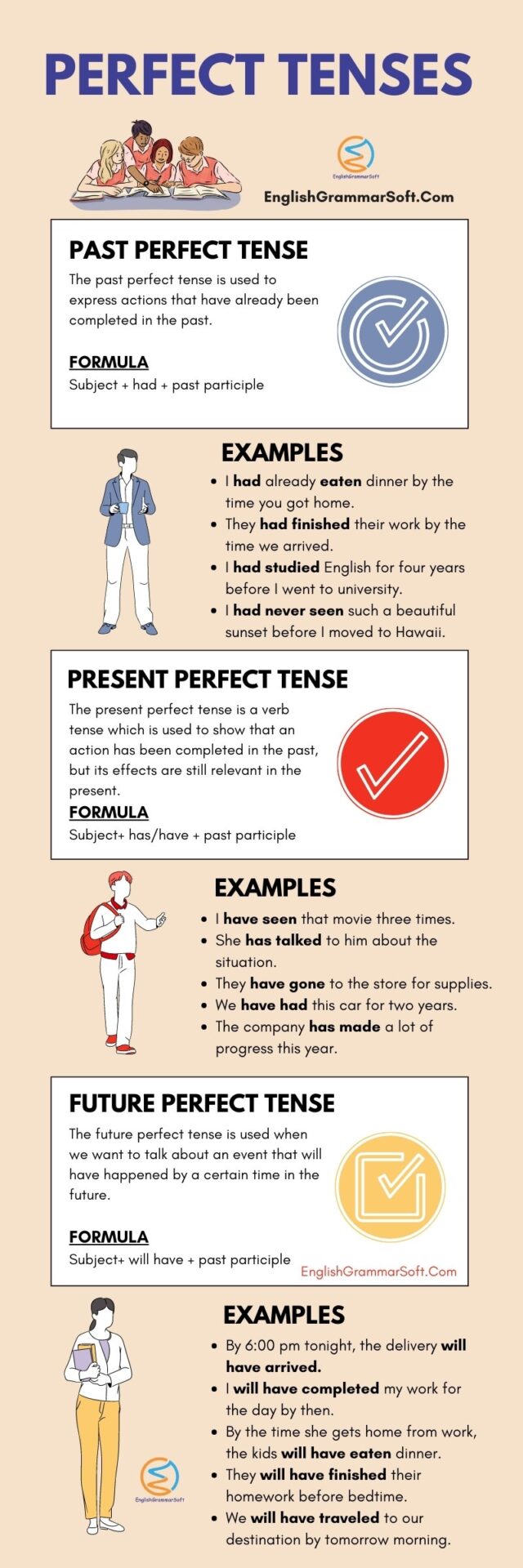
Further Reading
